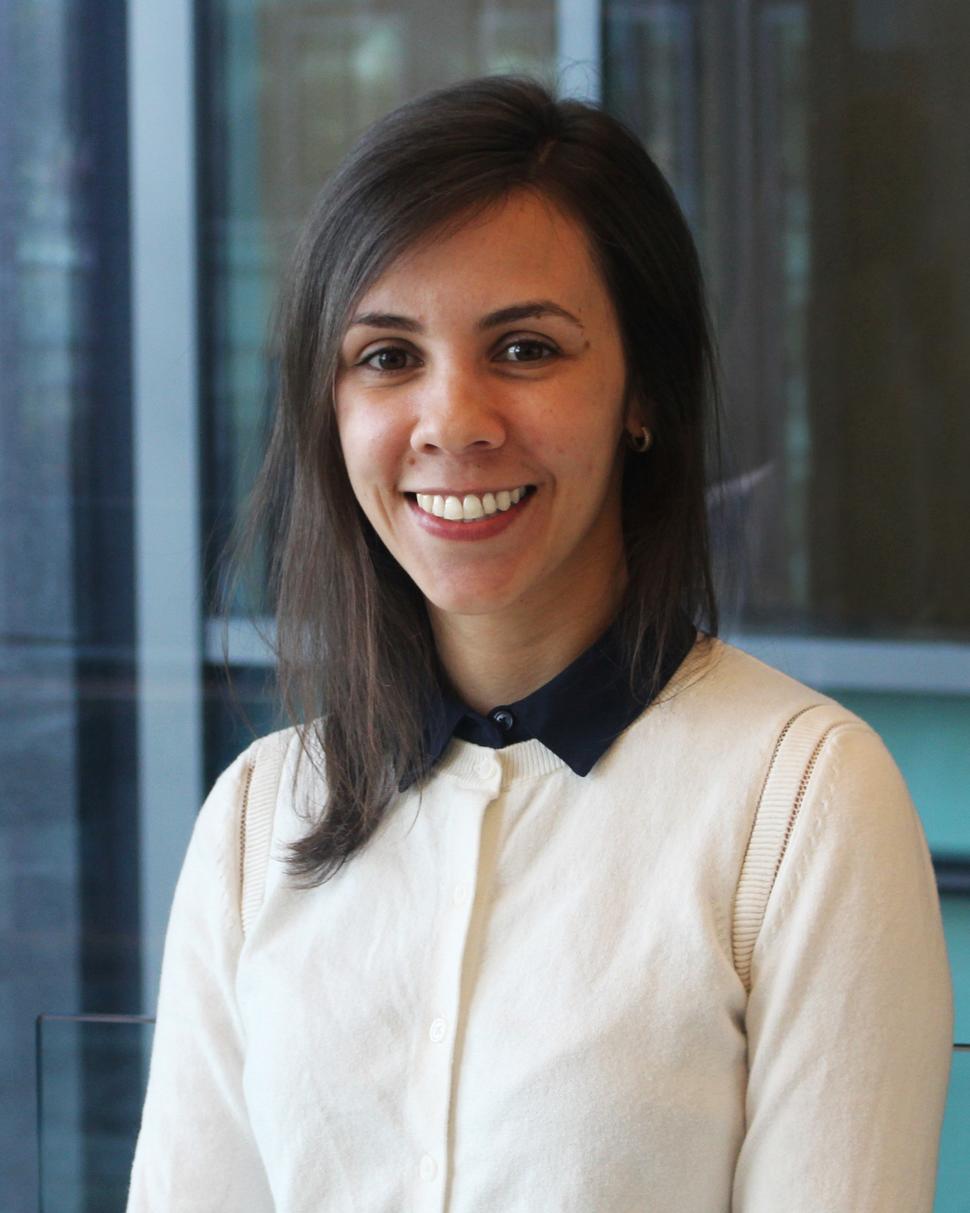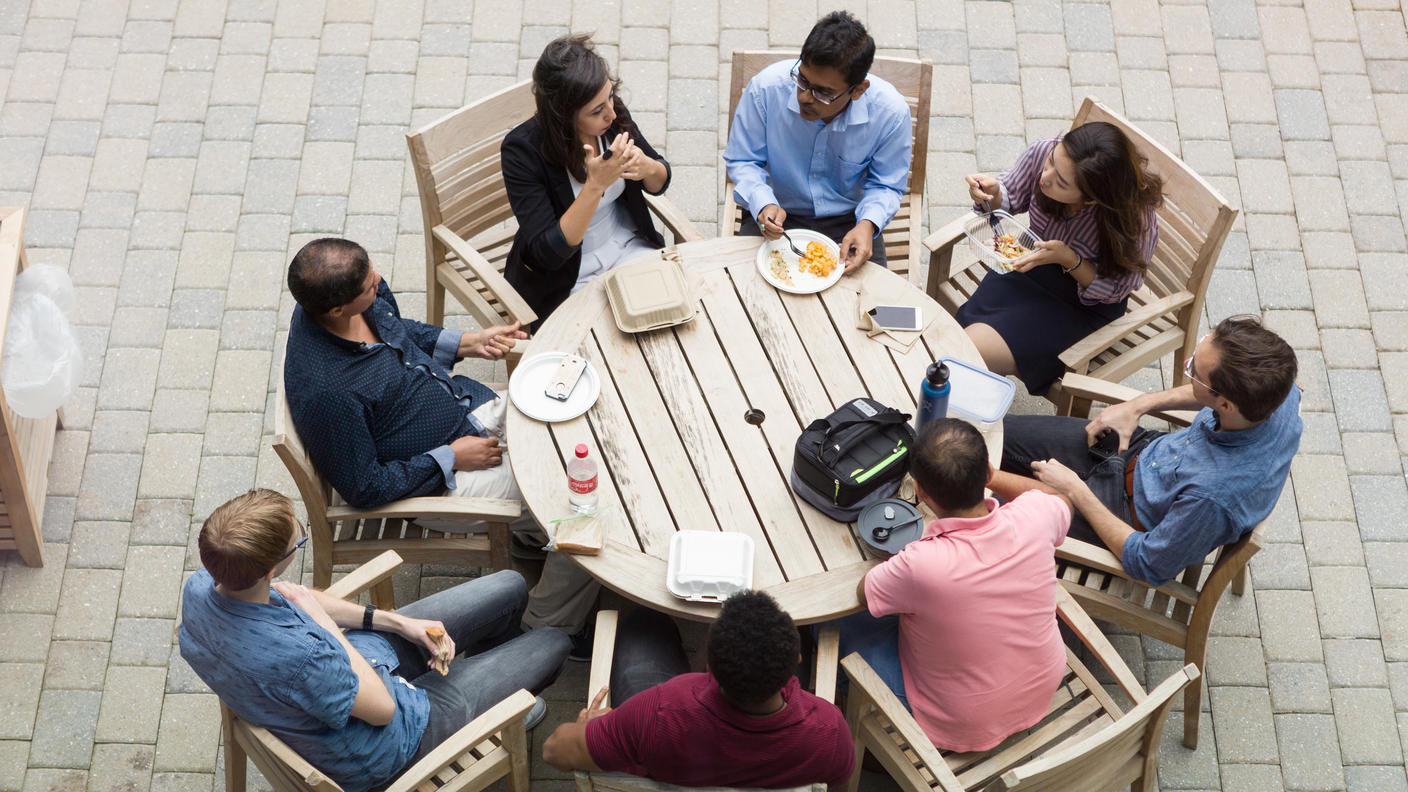Interview conducted by Jazmyn Bess, M.S., postbaccalaureate iCURE fellow in the Clinical Genetics Branch.
Years at DCEG: 2017 to 2022
DCEG Title: Postdoc Visiting Fellow and Research Fellow
Current Organization: Glaxo-Smith-Kline (GSK)
Current Title: Senior Data Scientist
Who was your mentor at DCEG? What did you work on?
Lisa Mirabello, Ph.D., M.S., was my mentor, and I really liked her. I also enjoyed working with Mark Schiffman, M.D., M.P.H.
What was your title at DCEG?
I started as a Postdoctoral Visiting Fellow because I came from Brazil, then I switched to Research Fellow four years in. So for less than a year and a half I was a Research Fellow.
What is your current position?
My current position is a Senior Data Scientist at GSK. I mostly do molecular epidemiology, with a focus on vaccines. I landed exactly where I wanted in my current job, because it’s molecular epidemiology that involves genetics, and I work with the type of data I like. I also like that this work is so close to the step of implementation, and I enjoy working with epidemiologists.
What drew you to your research interest and current position?
Due to my work in DCEG working with HPV35, viruses, vaccines, and the importance of including correct lineages in vaccines, I really wanted to work with vaccines and prevention. Vaccines are different than screening, and they can impact thousands and thousands of people at a very low cost, relatively speaking. Choosing this path went along with my values because of the public health impact of this work. I feel so proud to help and impact millions of lives.
How do you apply the skills you developed at DCEG in your current job?
In DCEG, I learned about epidemiology, statistics, and writing. Due to my experience in DCEG, I can communicate with epidemiologists better than some other data scientists. I’ve been able to be a good bridge between data scientists, epidemiologists, and molecular epidemiologists, due to my experience at DCEG.
Can you talk about your experience on DFEL and the kinds of initiatives you led or supported?
I was a branch representative and also co-chair of DFel committee. I helped lead the 2017-2018 fellows survey and presented the findings to DCEG's Senior Advisory Committee. I also participated in the DCEG Inclusivity Minute and wrote one post on diversity and its benefits to advancing science, reaching communities, and making an impact on research. I also went to volunteer events. Really nice period.
How did DFEL impact your time in DCEG and what have you taken forward from it into your career?
Participating in DFel was good for me. Through it, I was able to connect more with Jackie Lavigne, Ph.D., M.P.H., director of the Office of Education and others in her office, and they were a huge resource. Also, it allowed me to connect with other people in DCEG and other fellows. I also think it helped with my visibility as a fellow, bringing awareness to the branch director and division director about my contributions. Being part of DFEL also provided a good opportunity for leadership training, which I've taken into my current position, where I’m organizing meetings, managing things and people, and working on agendas. It was just fun and made my life easier as an immigrant from a foreign country. It made me feel more connected and at home. My experience as a DFel representative actually contributed to getting hired in my current position.
What memories from your fellowship would you like to share?
Volunteer work especially where we planted trees, had to dig, and clean dirt. Also a time when Jackie invited us to her home, took us on her boat with family. Jackie is amazing! Presenting Fellows survey was a big challenge, but I overcame it. Getting awards in DCEG was nice and the overall type of training received in DCEG makes you so prepared for positions. The relationship with mentor Lisa was really nice, very approachable.
What do you do in your free time?
I play with my dog, hang out with friends, watch series with my husband, go rock climbing, and love traveling to other places and visiting my family back in Brazil.
Do you have any advice for current or future DCEG fellows?
Don’t let anxiety drive you. Sometimes you may be scared to do things, or compare yourself to others, but if you really like what you do and where you are, and how you can bridge things to the future, don’t give up. Go for what you think is right, trust your gut. Of course, be humble, we don’t know everything, but trust yourself. Trust your decisions. There is a reason you are feeling a certain way or want to go a certain way. If you want to continue in DCEG as a researcher, make yourself visible. If people don’t know about you, it will be hard to succeed. Also explore other opportunities, because there is an amazing world outside that I just discovered when I left, and I absolutely love what I do today.

